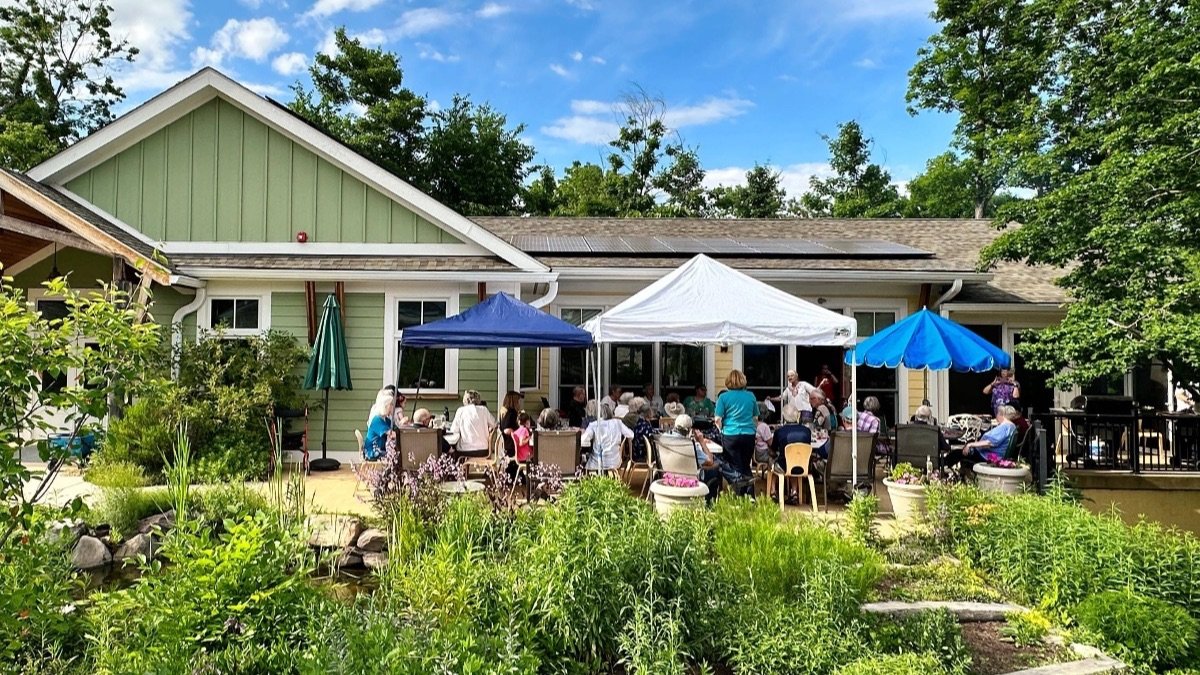
About Us
A welcoming and vibrant Cohousing community in Shepherdstown, WV, where we thrive together in beauty and simplicity.
Shepherd Village is a beautifully-designed, close-knit neighborhood that aims to support aging in place, staying actively engaged in life and enjoying deep friendships.
Shepherd Village is the first (and so far, only!) cohousing community in the state of West Virginia.
We have no homes currently for sale or rent, but homes do open up occasionally, so if you think you might be interested in joining our village community, come to one of our online open houses to learn more! We announce open houses in our monthly newsletter, the Shepherd Village Voice, which you can view and subscribe to here.
Click Shepherd Village Voice,
to see our latest newsletter.
Who we are
We have 30 homes where singles and couples, working and retired, volunteers and activists enjoy full and rich lives. Some of us have lived and traveled around the world; some of us enjoy the quiet of home. We all value community, share our diverse skills and interests, and offer mutual support to each other. Environmental sustainability is important to us, and together we have created simple and beautiful housing that honors the earth and preserves open spaces.
The people of Shepherd Village represent a wide range of faiths and beliefs. Among us are those who follow traditions of Christianity, Judaism, Buddhism, combinations of many or none at all. We value diversity and look forward to expanding and enriching our world as we learn from one another.
How we are organized
Our members serve on Teams, where most of the work of the community is done. Each Team reports on its work and recommends actions to be taken. They include:
Architectural Review Team
Buildings and Grounds Team
Care Team
Common House Care Team
Community Life Team
Community Meals Team
HOA Coordinating Team
Finance Team
Legal Team
Permaculture Team
Conservation Team
Ecological Landscaping Team
Chicken Team
Outreach Team
Social Enrichment Team
Technology Team
Workshop Team
How we got started
There are many ways to tell our evolving story! Here's one:
Some of us have known each other for a long time; many are newly made friends. Some of our early members were part of other intentional communities, starting as early as the 1970s. Around 2010, they began to have conversations about how to continue to enjoy the precious gifts of community through the years ahead. At that point, some were living in the DC metro area, and others closer to Harpers Ferry and Shepherdstown. In 2011, five of them visited an intentional residential community in Abingdon, VA, and came back excited about the possibility of creating something similar in this area.
Shepherdstown seemed to be a perfect place to nestle such a community. Surprisingly, they discovered an available 19-acre tract of undeveloped land within the town. Project conversations then broadened to include more people in the Shepherdstown area. What would become "Shepherd Village" was launched when original members were joined by local folks at an exploratory meeting in January 2013. The 15 participants shared their hopes for the future, and one of the local leaders introduced the concept of "cohousing."
The project took off! By March 2013, an emerging group of 11 households had become an LLC (limited liability corporation), and in November of 2013, one of the households purchased the 19-acre tract on behalf of the group. And so the journey began...
Our Village

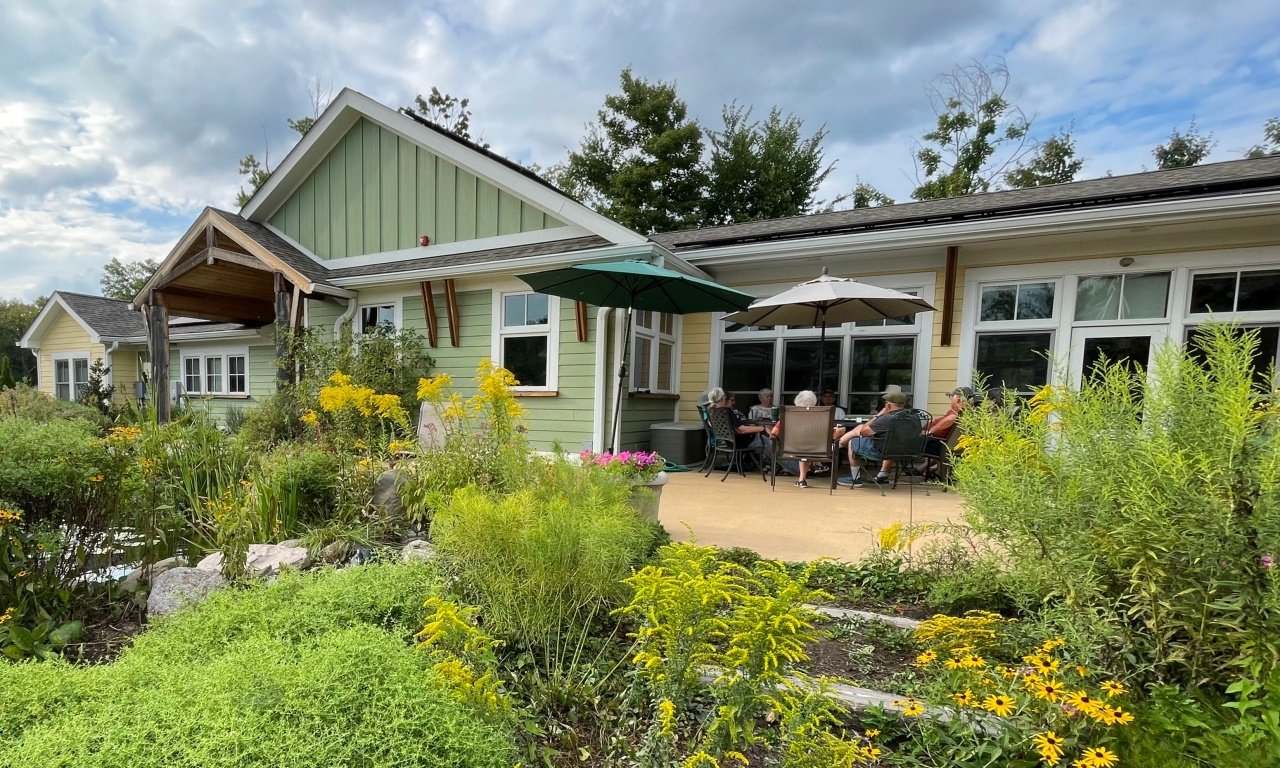
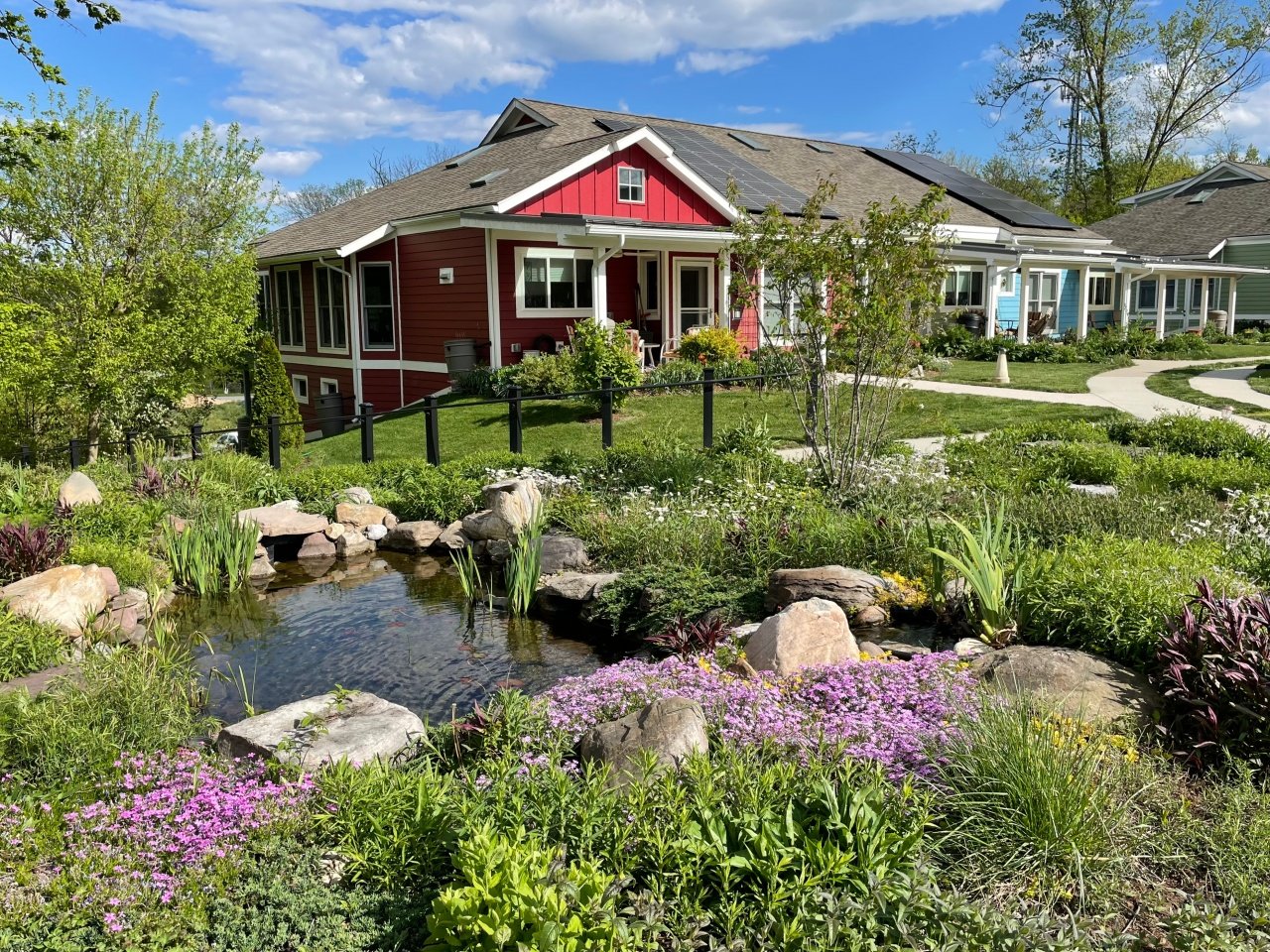



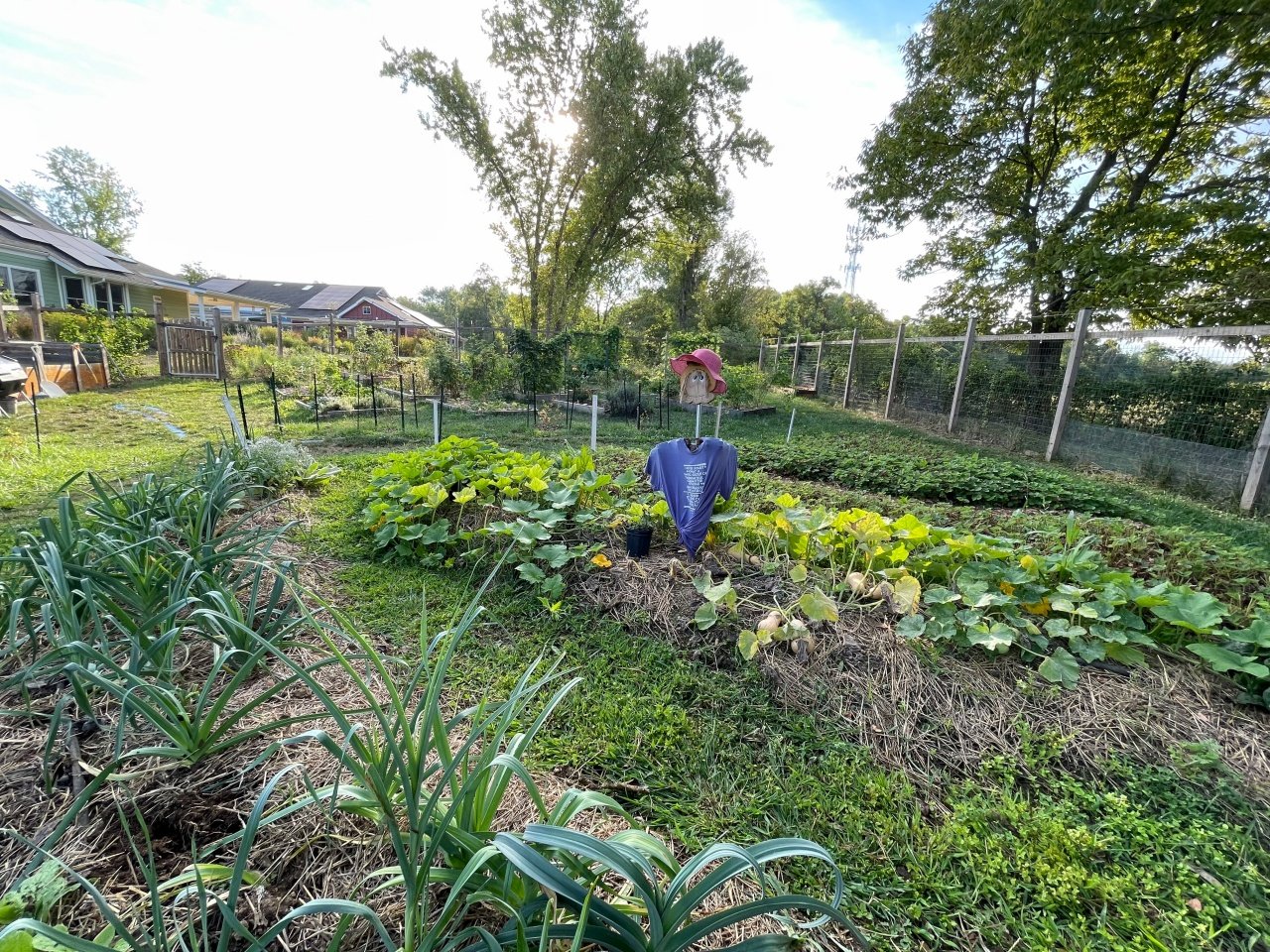
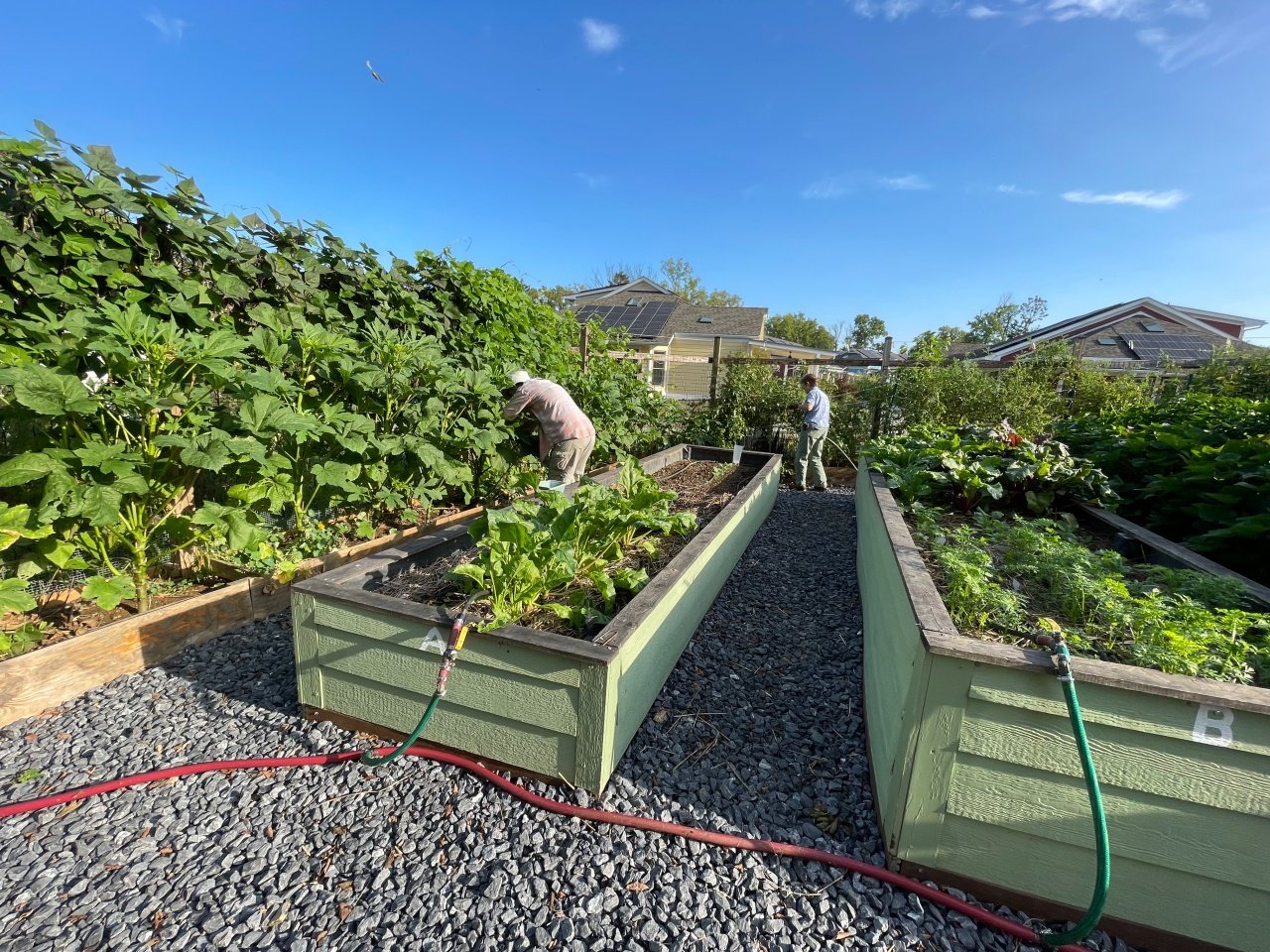

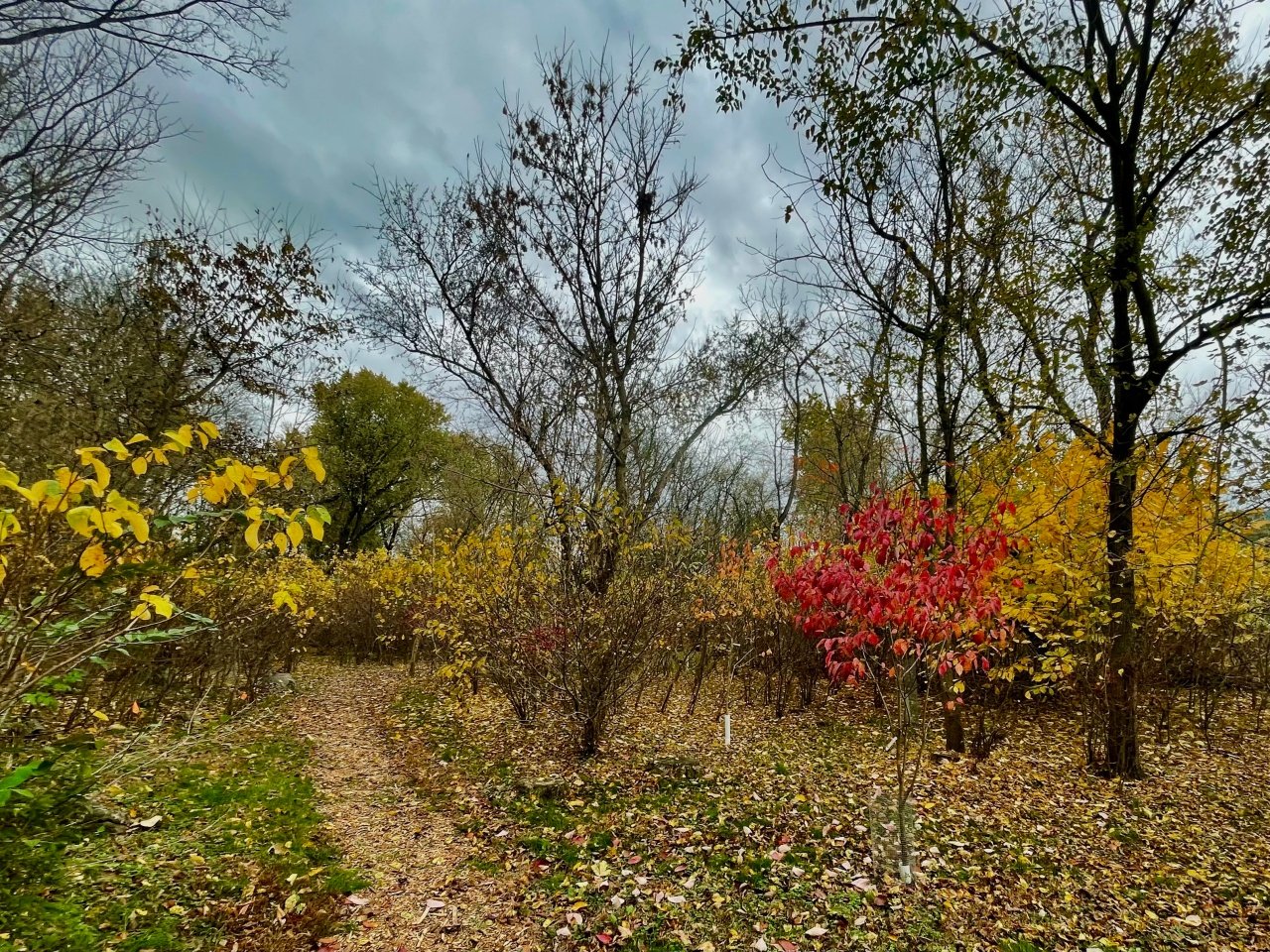


Each home has a small yard, plus ownership of a 1/30th share of the common property: woods, paths, community garden, greenhouse, woodworking shop and the Common House — our shared gathering place. It includes several multipurpose rooms, entertainment systems, fully-equipped kitchen, lovely large dining area, screened porch, and guest rooms. The garden center contains a greenhouse with a living roof. There are about seven acres of common forested land with walking trails. All are managed by the community through our homeowners association. The community is a four-block walk to downtown Shepherdstown shops, restaurants, churches and Shepherd University. There is a MARC train station nearby with service to Washington, D.C.
Shepherd Village Community Gallery
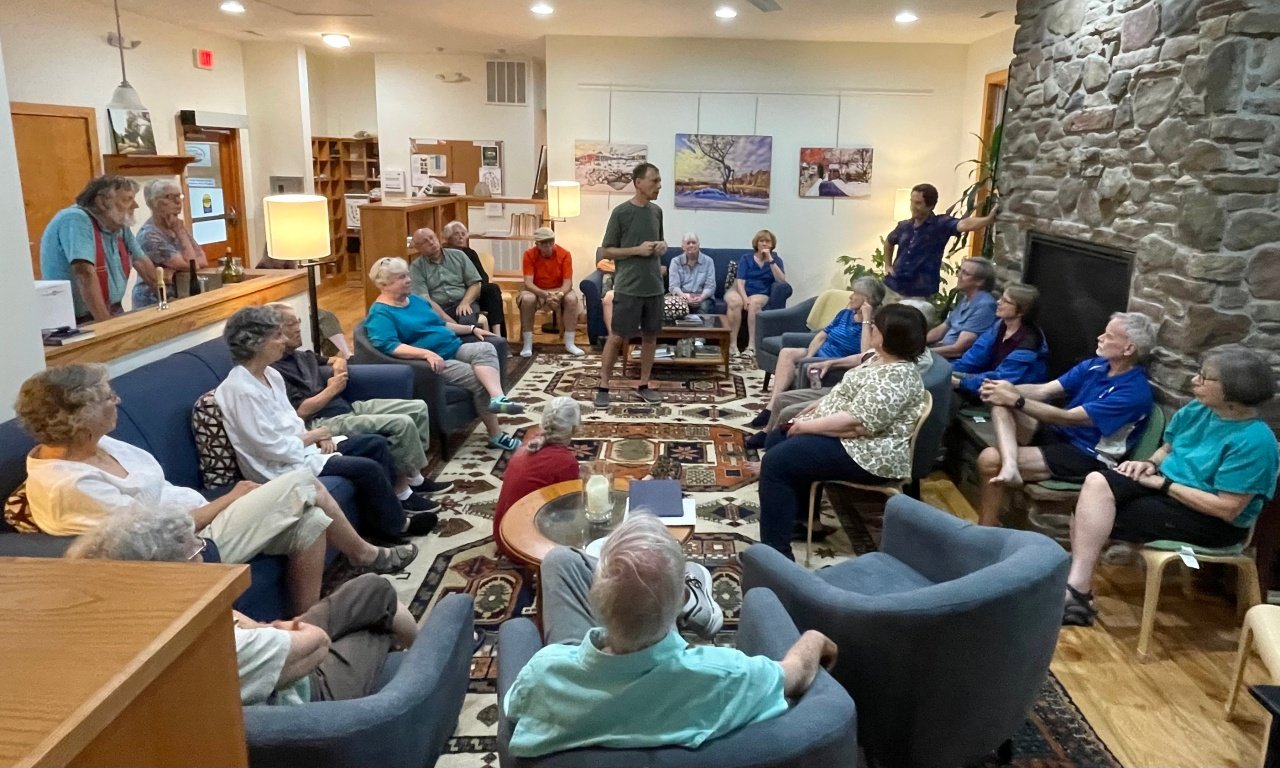


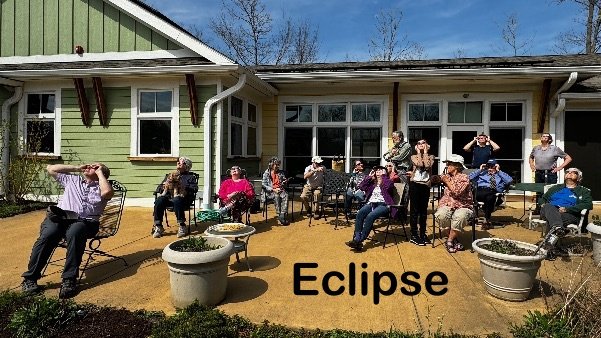




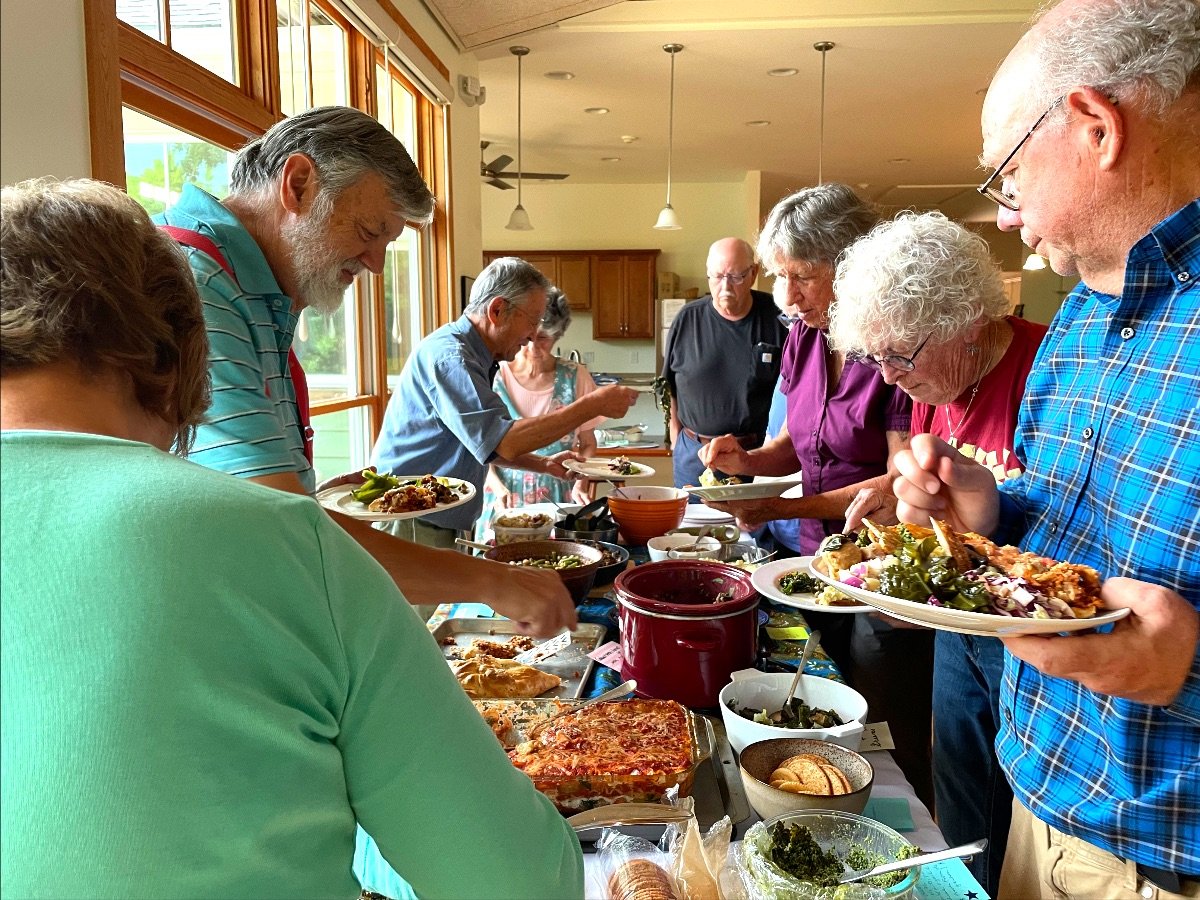
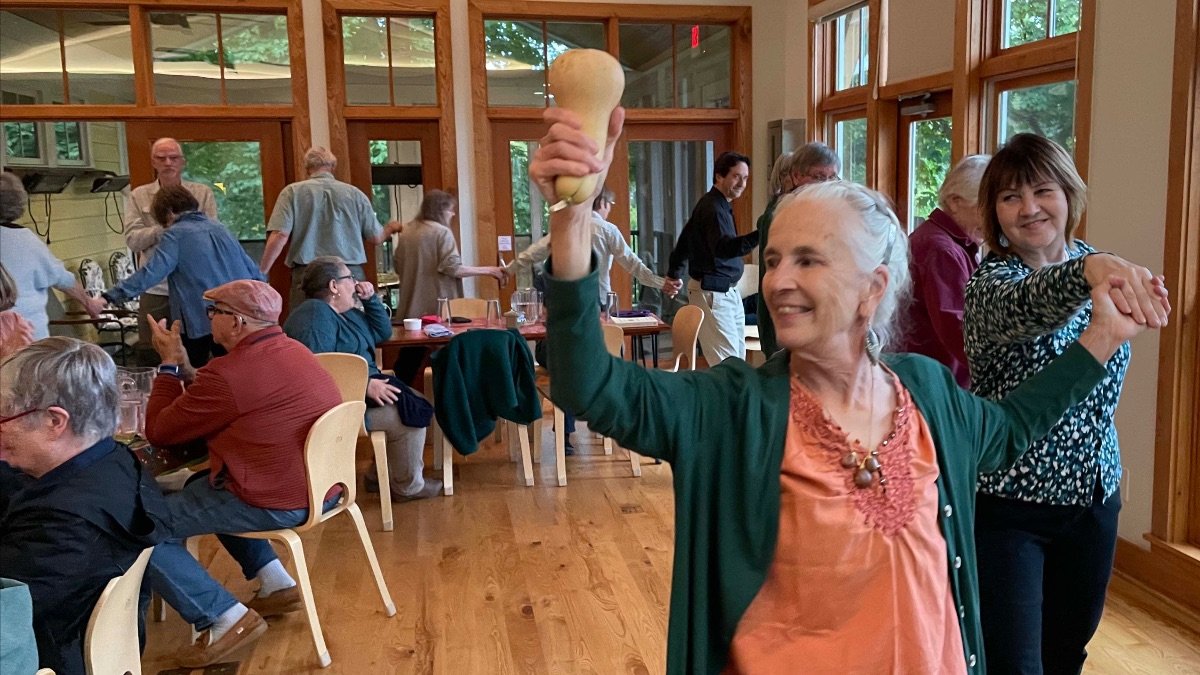

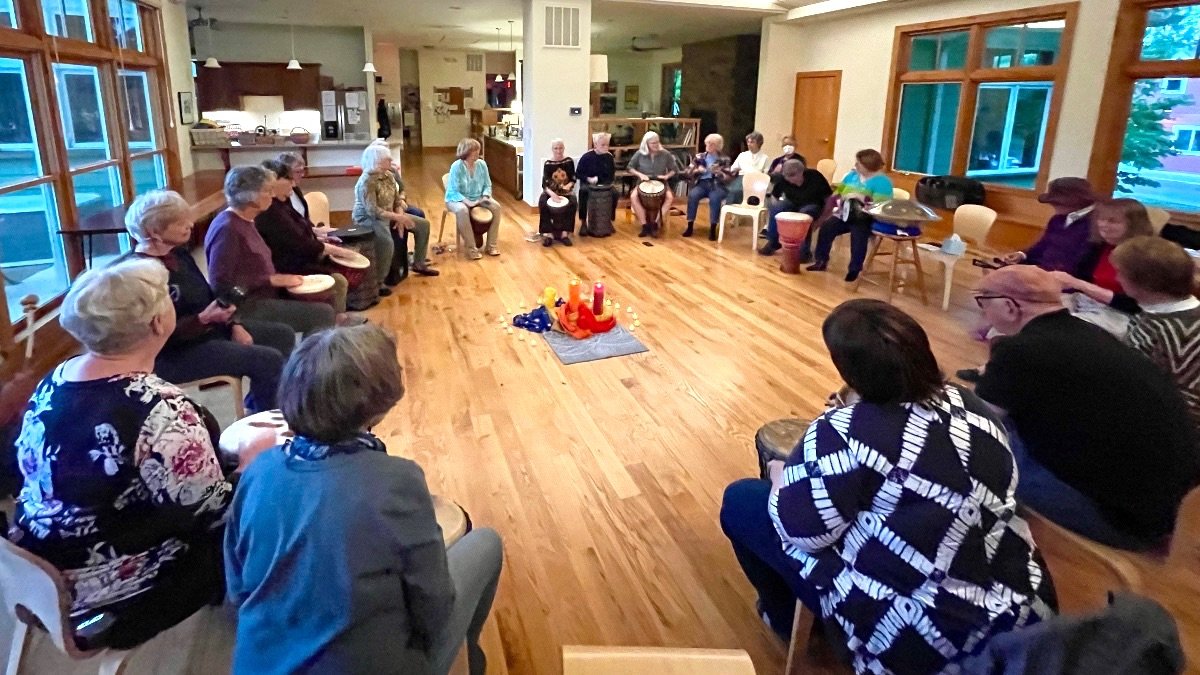
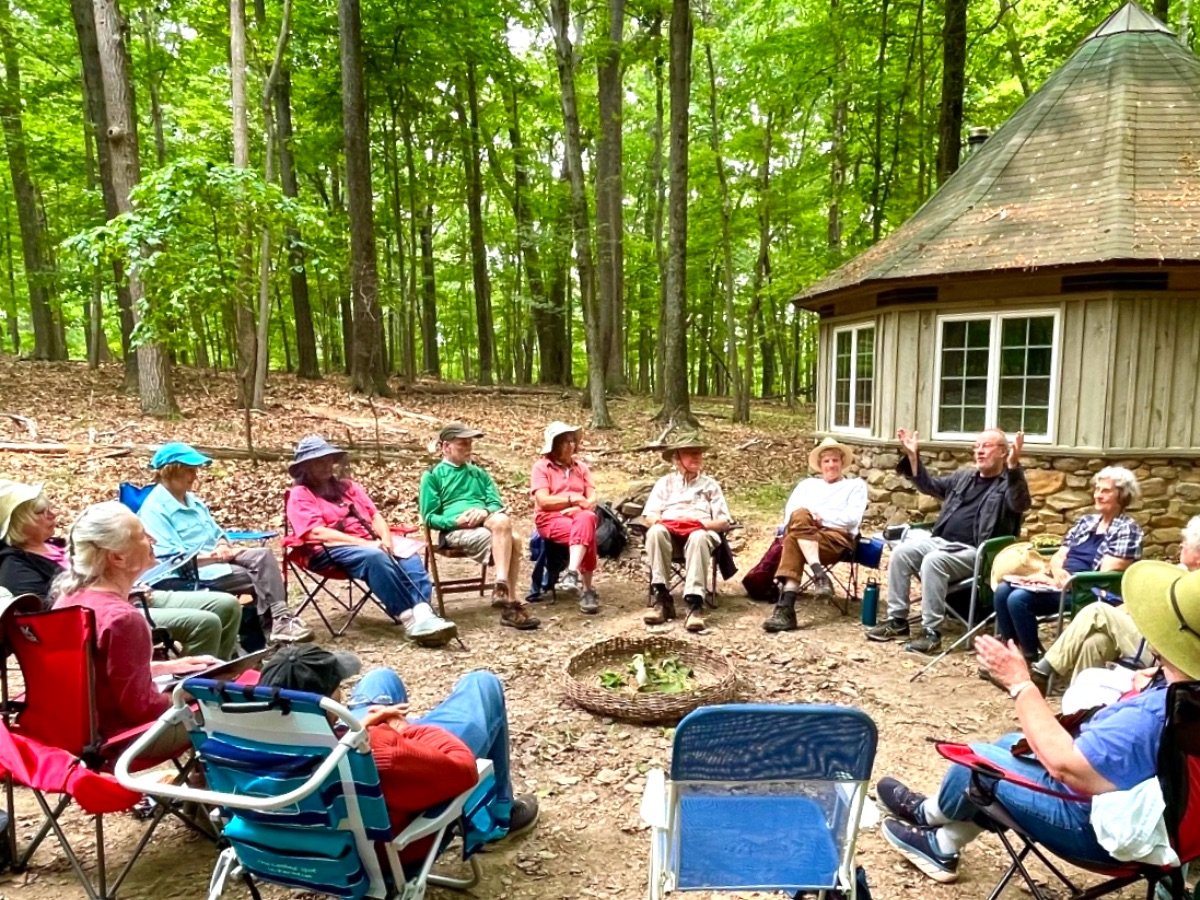

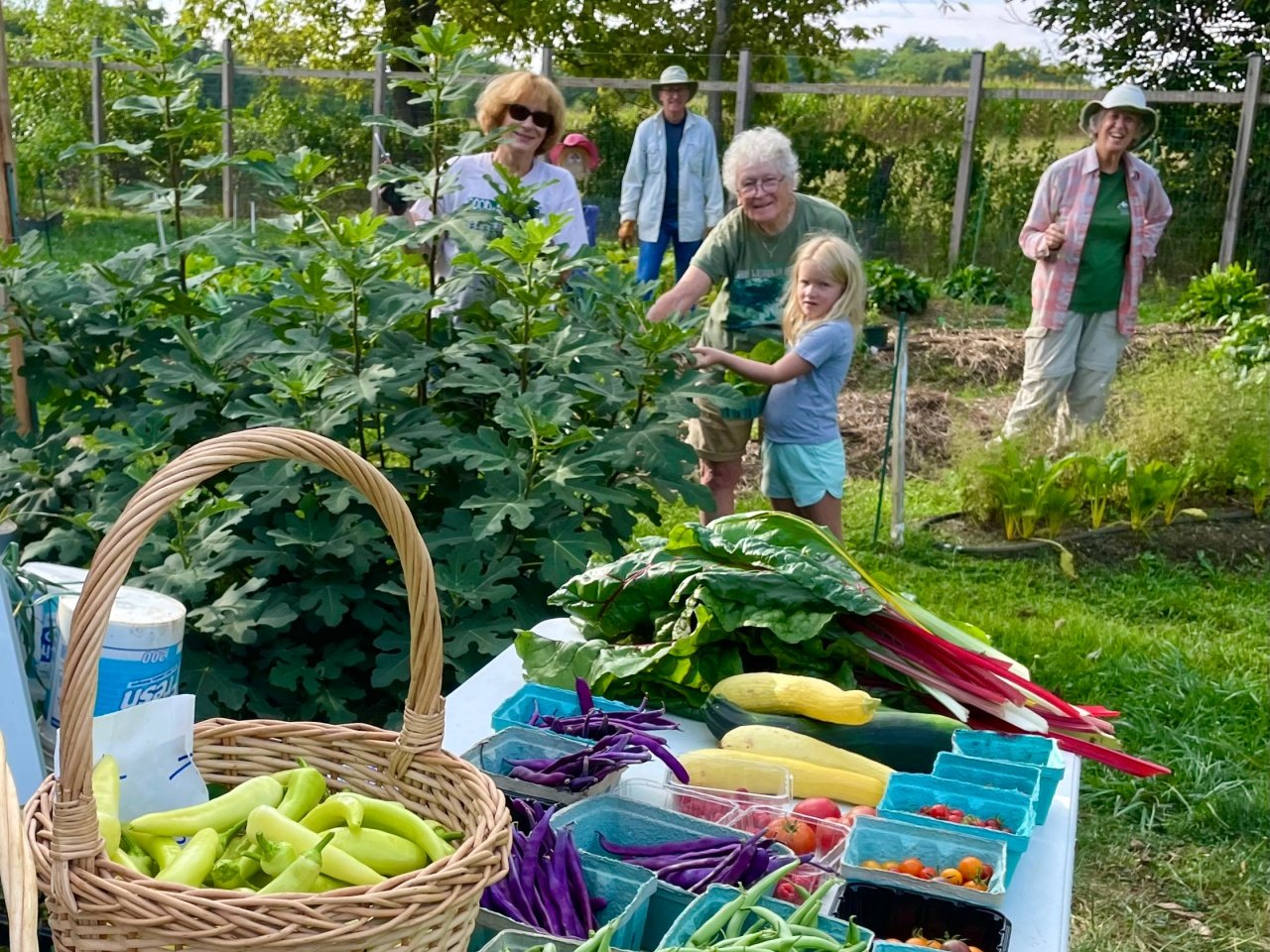
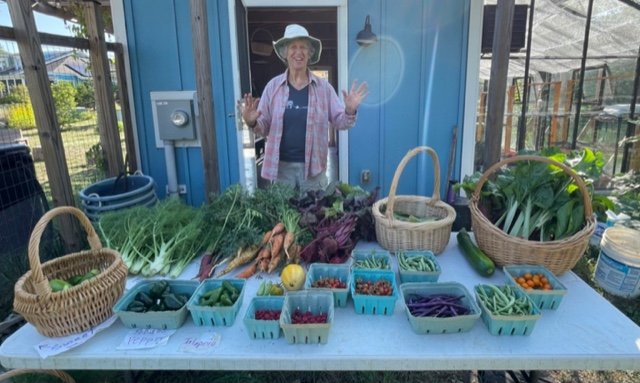







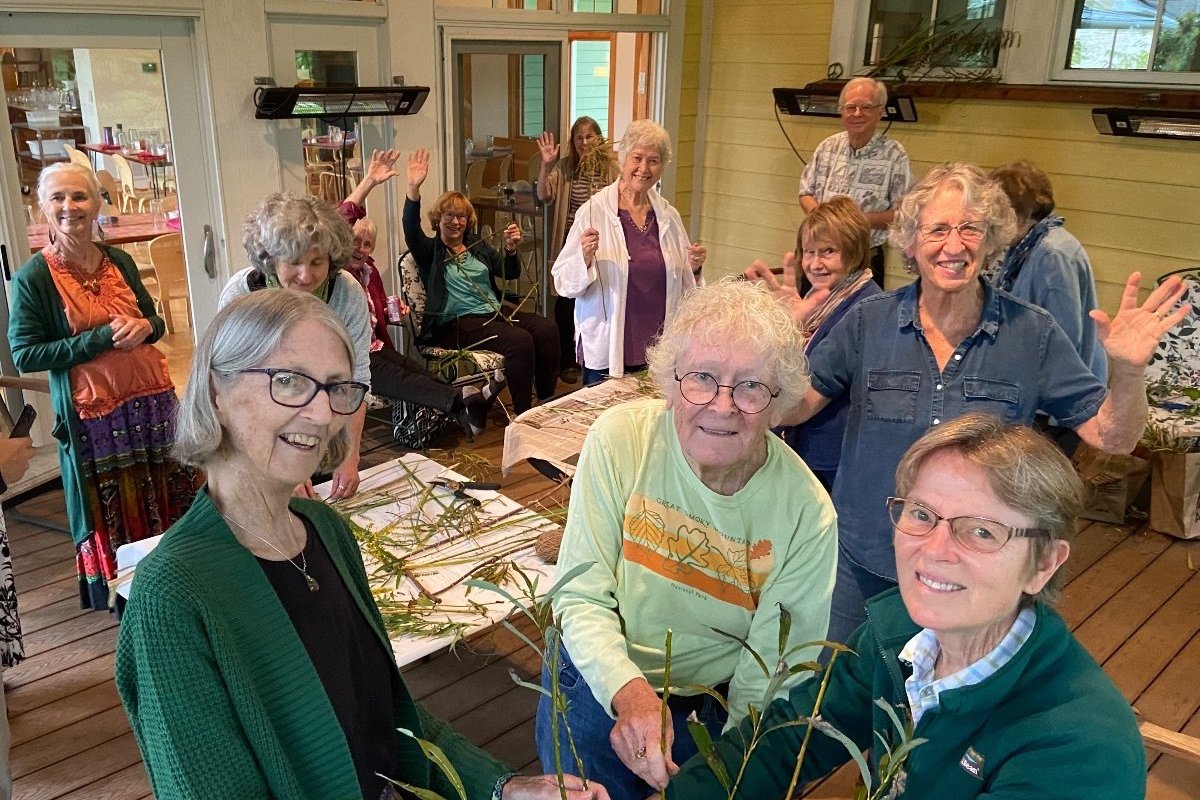
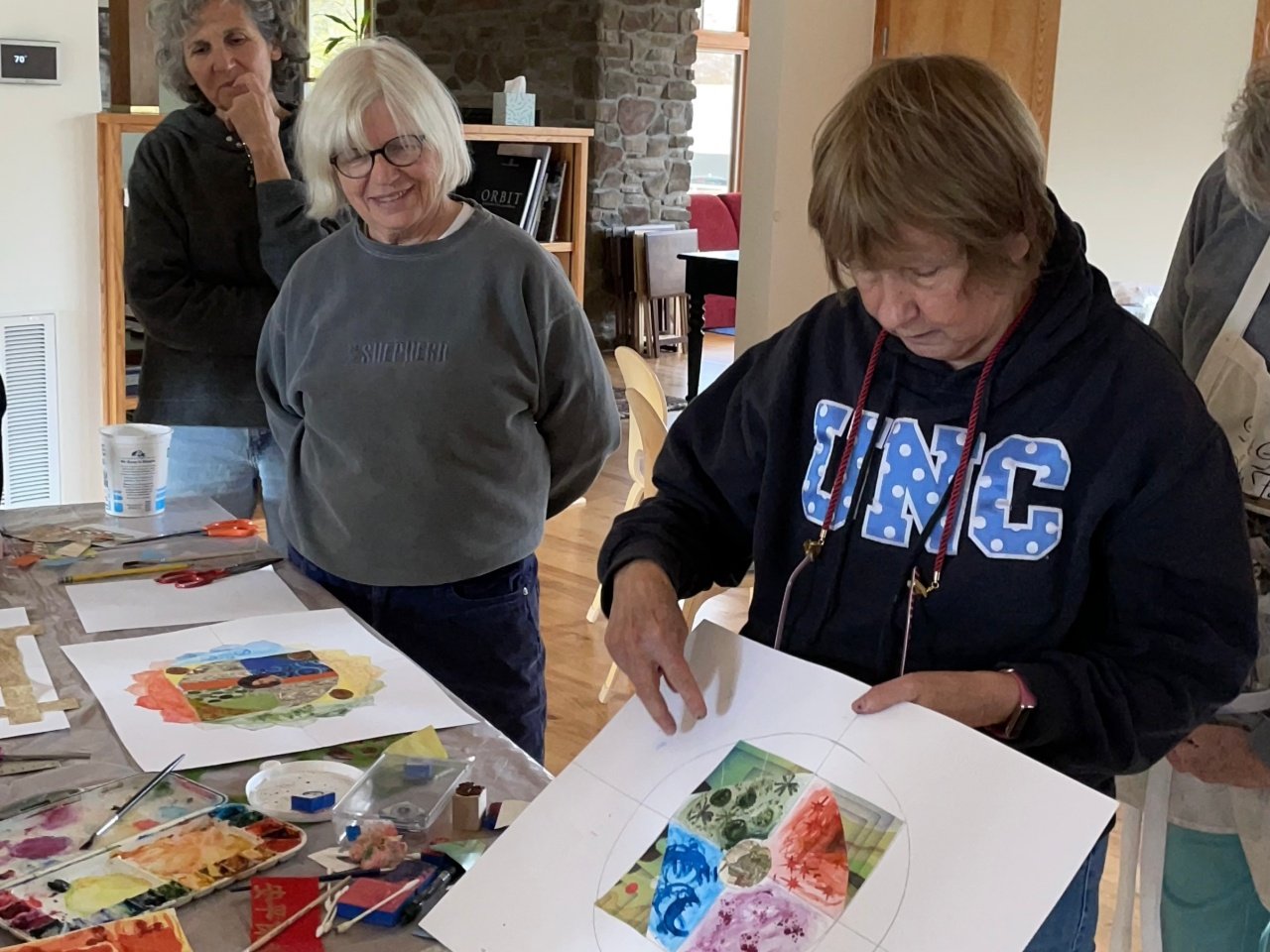
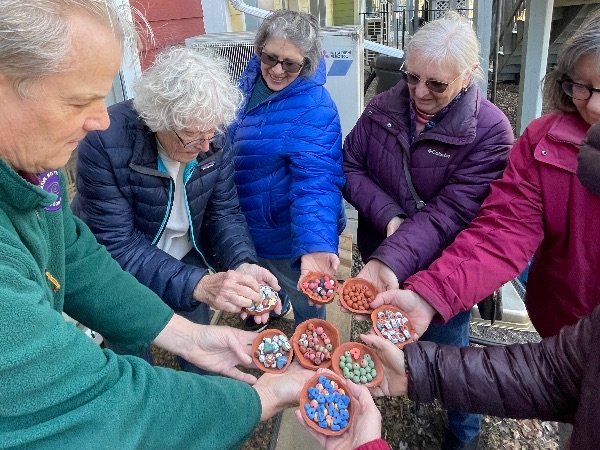


Joining In
Periodically, homes become available for sale or rent. If you think you might be interested in joining our village, come to one of our online open houses to learn more! We announce open houses in our monthly newsletter, the Shepherd Village Voice, which you can view and subscribe to here. We also post lots of photos on our Facebook page.
For more information about cohousing, explore these resources:
Websites
Books
Creating Cohousing: Building Sustainable Communities, Kathryn McCamant & Charles Durrett
The Senior Cohousing Handbook, second edition, Charles Durrett
Rightsizing Your Life, Simplifying Your Surroundings While Keeping What Matters Most, Ciji Ware
Creating a Life Together: Practical Tools to Grow Ecovillages and Intentional Communities, Diana Leafe Christian
Pocket Neighborhoods, Ross Chapin
The Cooperative Culture Handbook, by Yana Ludwig & Karen Gimnig
Video
Frequently Asked Questions
What is cohousing?
Cohousing is a form of intentional neighborhood in which residents actively participate in the design and operation of their own community. The physical design encourages social contact while preserving privacy.
What are common features of cohousing communities?
Participation – Residents as a group drive the planning and design of the community and make all major decisions.
Designs that facilitate community – From the placement of mail boxes and walkways to the orientation of the houses, site design is focused on supporting easy and spontaneous social contact.
Extensive common facilities – Cohousing communities have what’s called a “Common House” – a beautiful house that typically includes a kitchen, large dining area and relaxed sitting areas as well as smaller side rooms for things like arts and crafts, yoga, exercise, wood working, reading and often some guest rooms. The facility is considered an extension of your home and is meant for daily use. Other shared facilities may include storage sheds, gazebos, walking trails, community gardens and other open spaces.
Complete resident management – All members share responsibility for the management and care of the community – building, maintaining and enriching it by participation in decisions and doing the work.
Non-hierarchical structure – Leadership is distributed and responsibility is shared. There is no single leader or elected body that runs the community. Decisions in groups and teams are typically made by consensus, although some groups also use voting if the group cannot reach consensus after several tries. (This is rarely needed.) When information is shared well and processed maturely by the whole group, resulting decisions are both wiser and owned by everyone.
Volunteer economy – There is no shared community effort to produce income. The community is not a source of income for its members. Residents typically volunteer their labor as their contribution to shared responsibilities.
How many cohousing communities are there in the United States?
The first U.S. cohousing communities were built in the early 1990s. As of March 2025 there are close to 200 U.S. communities, according to the nonprofit Cohousing Association of the United States. Many others are in various stages of development. Most are intergenerational. Others are oriented more to people who are mostly 55 years or older.
How is Shepherd Village different from a commune?
Shepherd Village homes are privately owned, in fee simple, and there is no shared income or ideology.
What if I don’t feel like socializing all the time?
Very few of us feel like socializing all of the time. In cohousing, there is no expectation to be social at any particular time. Cohousing offers the choice of enjoying the privacy of your own home (and common areas that are not currently in use), or enjoying whatever happens to be going on in the neighborhood. How much you socialize is up to you. Many cohousers in other places create their own signs or symbols to let their neighbors know if they would prefer not to talk at the moment. Of course, those of us who choose to live here do so because, in general, we enjoy getting to know one another. Cohousing is actually very popular with introverts, because there’s no “work” required to socialize; it’s “built-in.”
What if I don’t like all my neighbors?
Well, don’t be surprised – would you expect to like every single person in a group of 30 households? There will naturally be some people with whom you get along better than others. But when that person who slightly annoys you picks you up at the airport or shows you how to grow scrumptious tomatoes, he or she might not seem so bad. You may even grow to like people whom you had earlier judged poorly. Some say that cohousing is the biggest personal growth experience you’ll ever have.
What is accessible design?
As people age, they sometimes need different features in their homes – like having sufficiently wide doorways to accommodate walkers or wheel chairs, easy-open door handles, walk-in showers, no steps required for daily living, etc. We have incorporated many of these “universal design” features.
Do residents have their own kitchens?
Yes, each residence has a fully-equipped, private kitchen. In addition, the Common House contains a large community kitchen where members can share as many meals or potlucks as they want each week.
How is Shepherd Village be physically maintained?
Members are responsible for the interior maintenance of their individual homes. Exterior maintenance and maintenance of the common property is shared. Some of the work is done by community members (for example, we get together on the first Friday of every month to clean the Common House) while some is contracted out and paid for with Homeowners Association fees..
How “green” is Shepherd Village?
While we recognize that building new housing has an environmental impact, Shepherd Village members value sustainability. Our homes are clustered together to protect woodlands and preserve open green spaces. Members worked with the architects during the building process to include energy-efficient and sustainable practices as much as possible. The Common House and many of the homes have solar panels. Living close to neighbors and friends and within a few blocks of downtown reduces our vehicle fuel consumption. Some residents drive electric vehicles and we have three charging stations on site. Residents share things, such as tools, ladders, and lawn mowers, which reduces our need for every household to own these items. We make good use of our on-site recycling center, and we compost our yard and kitchen waste in our common garden.
Is there covered parking?
The community is pedestrian friendly, with a design that gives people priority over cars. Each household has one covered parking space available, mostly carports, with some garages. There are also clustered open parking spaces.
What do homeowners own?
Each Shepherd Village homeowner owns his/her own home, and the land under and immediately around it. Through the homeowners association, homeowners also own a share of the Common House, chicken coop and garden shed, workshop and about seven acres of conservation and common land areas.
What if I own a Shepherd Village home and decide to sell later?
You would sell your Shepherd Village home just as you would sell any other home that you owned conventionally, except that your buyer may need to meet the age restriction requirements (80% of our homes must have one household member 55 or older). Because we keep a list of people who have expressed interest in buying a home here and gone through our orientation process, most Shepherd Village homes sell very quickly, without the owner even having to hire a real estate agent or pay sales commissions.
Are there meetings?
We have monthly community meetings, which are planned, managed and evaluated to respect the energy and time of members and enable us to share in the work of running and living together in the Village. Each member is encouraged to become a part of one or two teams that meet to do much of the work of the community between monthly meetings..
What is consensus?
“Consensus decision making is a creative and dynamic way of reaching agreement between all members of a group. Instead of simply voting for an item and having the majority of the group get their way, a group using consensus is committed to finding solutions that everyone actively supports, or at least can live with.” A fuller discussion of consensus decision-making is on the Seeds for Change website.
Who can/cannot live at Shepherd Village?
At least 80% of our households must include one resident member who is 55 or older. Members are At least 80 percent of our households must include one resident member who is 55 or older. We have never had any difficulty meeting this quota! Members are expected to participate in the life of the community and share basic community values (mutual respect, tolerance, care for the earth and each other). There are responsibilities of membership, including attending meetings and participating in teams. Before joining, a prospective member will have extensive opportunity to interact with other members so that an informed decision can be made concerning how ready the person is for community life at Shepherd Village. We try to maintain a diverse community as much as possible because we believe that life is richer if many different viewpoints and experiences are shared.
What is a Common House?
A Common House is a space that is like an extension of each person’s individual home. The price of each home includes a share of the cost of the Common House. Owners share the space. The Common House is the heart of a cohousing community. Our Common House has a kitchen, spacious dining area suitable for shared meals and community meetings, comfortable living room, media room, exercise room, craft room, and guest rooms..
How do you handle shared meals?
Most cohousing communities have shared meals at least once a week. That’s our average as well. Some are potlucks; some are prepared by a team of volunteers, organized by our community Meals Team. Diners who sign up typically chip in a donation to cover the cost of groceries and supplies, and also help clean up after the meal.
What shared activities are there?
Besides common meals, meetings, work parties and other gatherings, cohousing makes it easy to become part of a group that does spontaneous activities together, such as watch a movie on a big screen in the Common House, go for a hike, kayak, go out to dinner together or attend a lecture at nearby Shepherd University. The design of the community makes it easy to connect with people who enjoy the same things. The whole community celebrates some events together in the Common House or elsewhere on the land, such as around the bonfire pit adjacent to our Garden Center. Working together on teams while gardening, cooking or organizing social activities is a fun way to get to know neighbors and nurture new relationships.
Is there a “no smoking” policy?
Yes, our members have adopted a very clear “no smoking” policy concerning all buildings (private and shared) and anywhere on our grounds. We are committed to the health and well-being of all of our members.
Shepherdstown
Shepherdstown, West Virginia is a real gem!
Founded in 1762, the Town richly blends history, culture, and scenic beauty.Population 2,140.Home to many treasures — the nationally renowned Contemporary American Theater Festival, artists galore, musicians around every corner, restaurants to satisfy every palate. You’ll also enjoy the vibrant life of a university town (Shepherd University) with its Lifelong Learning program and state-of-the-art Wellness Center. Shepherdstown is nestled along the Potomac River next to the C&O Canal towpath, while just an hour from Dulles International Airport and within 90 minutes of Washington, DC, and Baltimore, MD.
For more info:
Shepherdstown.info
CATF.org
Shepherdwellness.com
Sustainablejeffersoncounty.org
Join our Mailing List
Sign up for the Shepherd Village Newsletter.
Be the first to know about news, special events,
sales and rentals at Shepherd Village.
Contact Us
Contact Us
We welcome your inquiries. Let us know how we can help you with more information.
Shepherd Village Cohousing
Common House
50 Shepherd Village Circle
Shepherdstown, WV 25443




